All horse owners and breeders hope to never find themselves in this position, but unfortunately, disasters during delivery can happen.

When do mares foal down?
Mares like to deliver alone and in the dark between the late hours of the night and the early hours of the morning. This is because they’re prey animals and prefer not to be seen. If disturbed during the beginning stages of labour, they can delay the process for a few days until they feel more comfortable.
Problems that develop during or immediately after foaling are considered life-threatening emergencies.
Early separation of the placenta
This is when the placenta is delivered before the foal. You would usually notice this if you see a red bag at the vulva. In these cases, the placenta would need to be cut with medical scissors and the foal would need to be pulled out immediately, as the foal receives his oxygen supply through the connection between the placenta and the mother’s uterus. There would be no time to wait for a vet, as the foal would suffocate within minutes.
Early separation of the placenta does not happen often and usually occurs because of an infection of the placenta. It can be detected if the mare starts dripping milk, but this doesn’t always happen.
Dog-sitting dystocia
Dog-sitting dystocia is a problem to do with the positioning of the foal and is often fatal. This is when the foal, as the name suggests, is positioned like a sitting dog, with his hind legs tucked underneath him instead of being stretched out behind. As the mare tries to push the foal out, the tips of the hind hooves catch on the pelvis and the foal gets stuck.
This story is from the January 2018 edition of HQ magazine.
Start your 7-day Magzter GOLD free trial to access thousands of curated premium stories, and 9,000+ magazines and newspapers.
Already a subscriber ? Sign In
This story is from the January 2018 edition of HQ magazine.
Start your 7-day Magzter GOLD free trial to access thousands of curated premium stories, and 9,000+ magazines and newspapers.
Already a subscriber? Sign In

The Science Behind Tapering
The science behind tapering
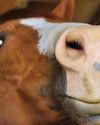
Horse Treats
The ultimate guide
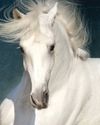
Horsey Hair Care
Tips and tricks for a healthy mane and tail
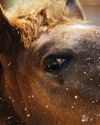
Horsey Hydration- The Importance Of Water In Winter
The importance of water in winter

A Horseback Safari
Abelana Game Reserve

The Psychology Of Riding Performance
Intrinsic motivation, part 7
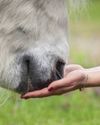
10 Best Life Lessons From Horses
Life lessons from our horses

Breaking New Ground
The evolution of the Callaho Online Auction
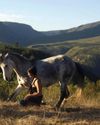
Horse Psychology 101
Part 3: The horse's cognitive abilities
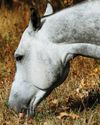
Colic Part 1
An owner’s worst nightmare